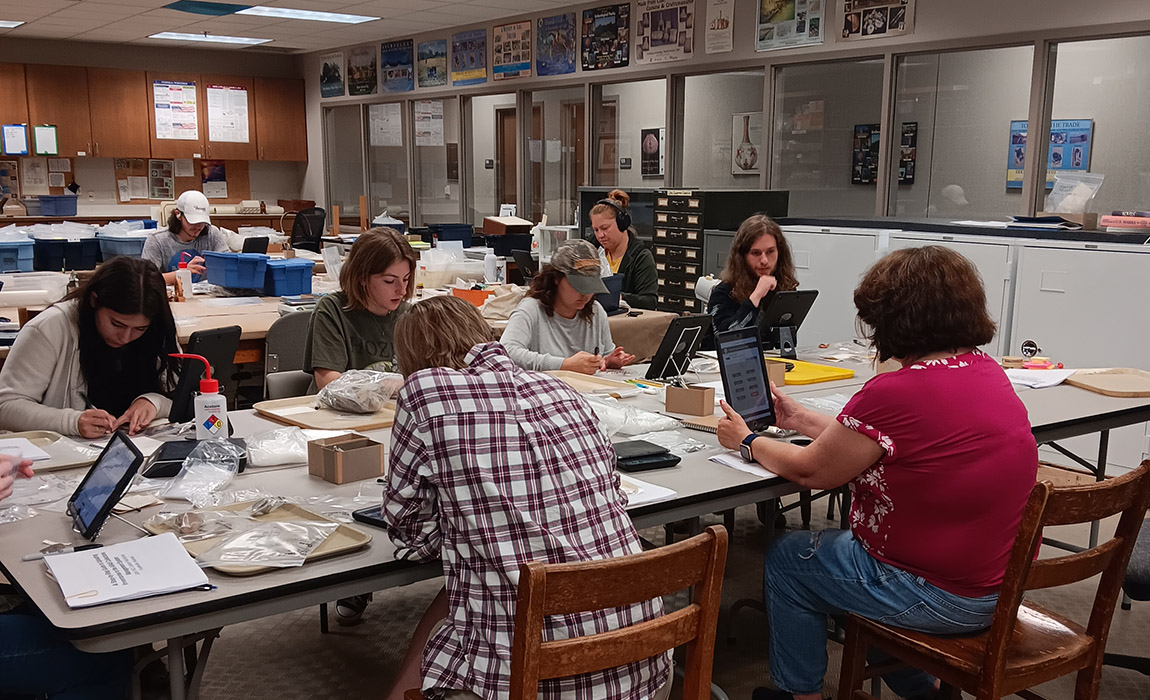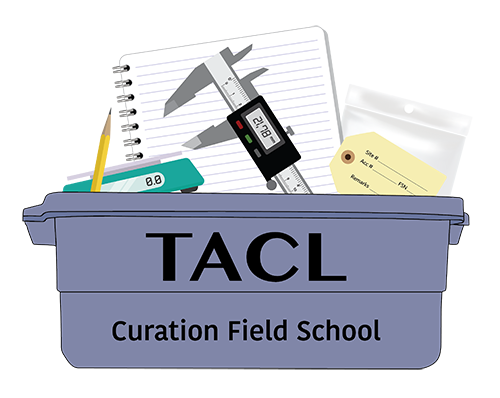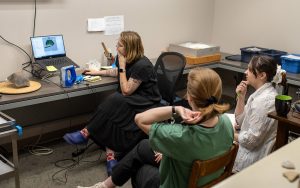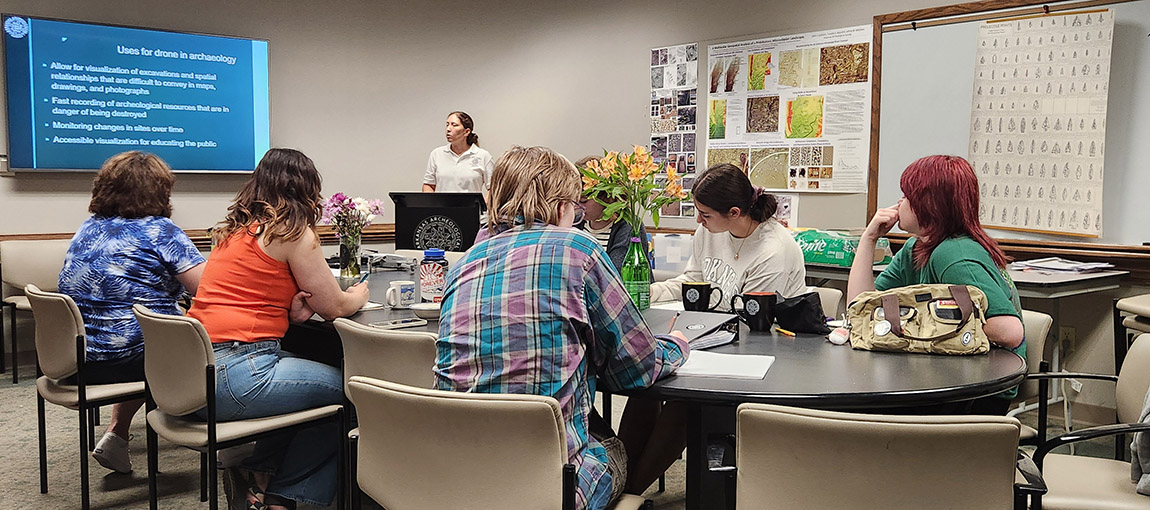Towards Achieving Curation Literacy: TACLing the Curation Crisis
Registration is now open through the Institute for Field Research. Application deadline is March 1, 2026 with late registration available through April 1. APPLY NOW!

Registration is now open through the Institute for Field Research. Application deadline is March 1, 2026 with late registration available through April 1. APPLY NOW!
 Every other summer (in even number years) the Arkansas Archeological Survey hosts a curation-based field school in collaboration with the Institute for Field Research. This 5-week course based in Fayetteville, AR teaches students the basics of archeological curation. The focus of the course is to rehabilitate a collection from its current state to one that is properly physically housed, digitized, inventoried, archived, and ready for long-term storage and future research. Each year a collection is chosen from different regions of Arkansas so that unfinished projects from all areas of the state can be brought up to current curation standards. This also allows us to work with varying descendant communities and archeologists to give students a wide range of experiences and views on archeology and curation methods and ethical standards in both.
Every other summer (in even number years) the Arkansas Archeological Survey hosts a curation-based field school in collaboration with the Institute for Field Research. This 5-week course based in Fayetteville, AR teaches students the basics of archeological curation. The focus of the course is to rehabilitate a collection from its current state to one that is properly physically housed, digitized, inventoried, archived, and ready for long-term storage and future research. Each year a collection is chosen from different regions of Arkansas so that unfinished projects from all areas of the state can be brought up to current curation standards. This also allows us to work with varying descendant communities and archeologists to give students a wide range of experiences and views on archeology and curation methods and ethical standards in both. In addition to working in the lab in these capacities, we take field trips each week to other curation and museum facilities around the area to see how other organizations work with artifacts in their care. We also speak with the curators and staff at these locations about the logistics, ethics, and politics of curation and display of artifacts in these different locations.
In addition to working in the lab in these capacities, we take field trips each week to other curation and museum facilities around the area to see how other organizations work with artifacts in their care. We also speak with the curators and staff at these locations about the logistics, ethics, and politics of curation and display of artifacts in these different locations.
